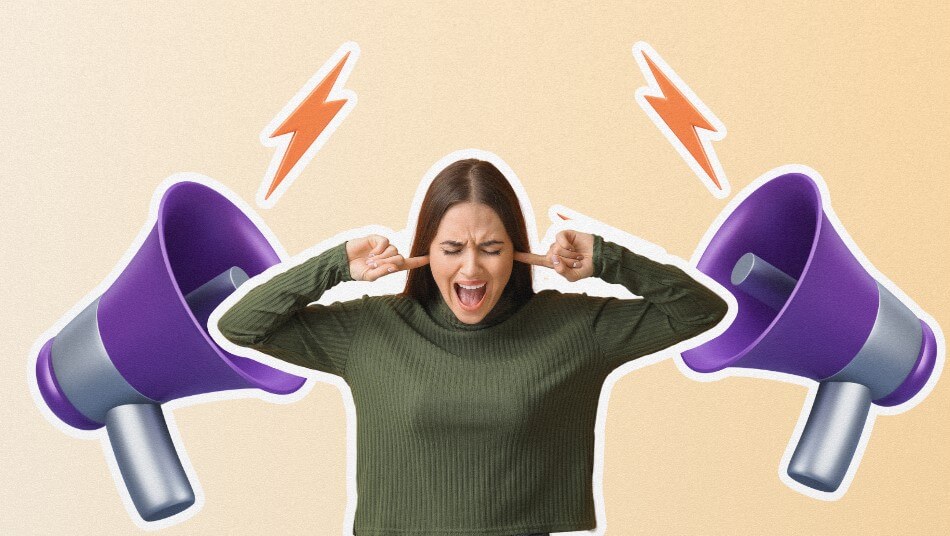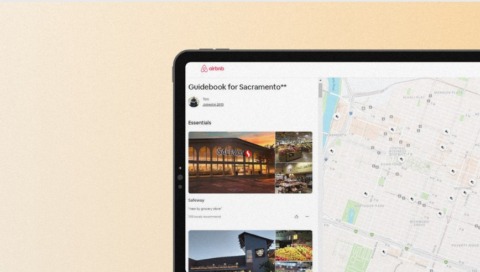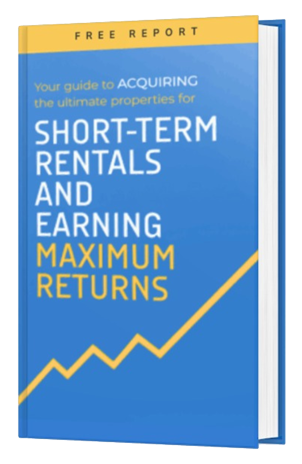Have you ever considered the impact that Airbnb noise can have on your guests’ experience and your relationship with your neighbors? Noise disturbances can significantly affect a guest’s enjoyment of their stay, and can also strain relations with those living nearby. As an Airbnb host, it’s crucial to strike a balance between providing a vibrant, lively space for your guests and maintaining a harmonious relationship with your community.
But how can you effectively manage Airbnb noise to ensure a positive experience for everyone involved?
Airbnb Noise Policies
Airbnb’s guidelines and recommendations for hosts regarding noise management are comprehensive and designed to ensure that both guests and hosts have a clear understanding of what is expected.
Hosts must take the time to familiarize themselves with these policies and ensure they are clearly communicated to guests. This includes specifying quiet hours and outlining the consequences of not adhering to these rules.
For example, if your property is in a residential area, you may want to set quiet hours from 10 PM to 7 AM. If a guest violates these quiet hours, you should have a clear process in place for addressing the issue, which could include a warning, a fine, or even eviction for severe or repeated violations.
By setting clear expectations and consequences, hosts can prevent potential noise issues and protect themselves from possible disputes.
Get My Proven Airbnb
House Rules Template
After hosting over 30,000+ guests, these 12 proven House Rules will protect you from just about anything…
Preventive Measures
Preventing Airbnb noise issues requires a proactive approach from hosts. Here are some ways to ensure a peaceful environment for your guests and neighbors:
Setting quiet hours
- Clearly define quiet hours in your listing and house rules. For example, you could set quiet hours from 10 PM to 7 AM.
- Use signage in the property to remind guests of quiet hours. This could include signs in common areas and in each guest room.
- Consider providing a gentle reminder to guests during the check-in process, if there have been any noise issues previously.
Clear instructions
- Provide clear instructions on noise expectations in your house rules and guest communication. This could include specifying the types of activities that are not allowed, such as parties or loud music.
- Use a digital guidebook to reiterate noise policies and expectations. This could include a section on noise policies, with links to local noise ordinances and other relevant information.
Noise proofing
- If possible, invest in noise-proofing measures during construction or renovation. This could include soundproofing walls, ceilings, and floors, as well as using double-pane windows.
- Consider adding rugs, curtains, and other soft furnishings to absorb sound. This could include providing rugs in common areas and bedrooms, as well as curtains or blinds on windows.
Additional guest amenities
- Provide white noise machines or fans to help mask external noises. This could include providing a white noise machine in each guest room, as well as in common areas.
- Offer earplugs as an option for guests who may be sensitive to noise. This could include providing a small basket of individually wrapped earplugs in each guest room, as well as in common areas.
- Consider providing other supplemental devices, such as sleep masks or blackout curtains, to help guests sleep better.
To help with noise, we've added some supplemental devices in our apartments. One of these is a white noise machine, which is an inexpensive yet effective way to mask unwanted sounds. These machines can play a variety of soothing sounds, from gentle rain to sweet ocean breezes, providing an extra option for guests who may be sensitive to noise.
Tim Hubbard
Handling Noise Complaints
When you get a noise complaint, it’s super important to fix the problem fast. This shows your guests you care about them and want them to have a great stay. Here’s what you should do:
First, talk to the guest right away and be professional and empathetic. Find out what’s wrong and figure out how to make it right.
Next, find out where the noise is coming from and do something about it. If it’s another guest making the noise, remind them of the rules and quiet hours. If they don’t stop, you might need to talk to Airbnb’s resolution center.
To solve this issue, you could help them find an alternative accommodation, or provide a refund.
You can also use noise monitors (which we’ll talk about more later). These gadgets can tell you if the noise is too loud and help you fix the problem before it gets worse.
Legal and Community Considerations
Noise can get you into legal trouble and mess up your relationship with your neighbors. Here’s what you need to think about:
First, know the local noise laws and make sure your Airbnb follows them. This could mean having quiet hours that match the local rules and soundproofing your place. If you don’t follow the laws, you could get fined.
Second, be friends with your neighbors. Let them know you’re renting out your place and that you’re doing everything you can to stop any noise problems. This builds trust and makes it easier to fix any issues that come up.
If a neighbor has a problem, talk to them right away and be professional. This shows you’re a responsible host and care about keeping the peace in your community.
Our favorite Airbnb Noise Monitors
Minut
Minut is a comprehensive home monitoring system that provides hosts with valuable information about noise, occupancy, motion, and temperature in their rental property.
It ensures that the neighbors are not disturbed, the guests’ privacy is maintained, and the host’s property is secure. Minut is designed to make short-term rentals a smooth and hassle-free experience for everyone involved.
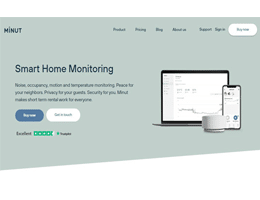
Minut
Smart Home Monitoring Noise, occupancy, motion and temperature monitoring. Peace for your neighbors. Privacy for your guests. Security for you. Minut makes short term rental work for everyone.
NoiseAware
NoiseAware offers smart noise monitoring solutions that allow hosts to be aware of what’s happening in their property without being physically present.
The system alerts hosts if the noise level exceeds a certain threshold, providing them with the opportunity to address the issue before it escalates. It is an essential tool for hosts who want to maintain a peaceful environment in their rental property.
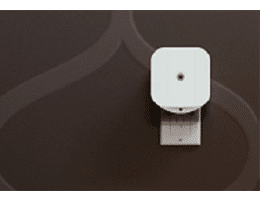
NoiseAware smart noise monitoring solutions
Be there without being there. NoiseAware sits quietly in the moments where problems arise, giving you insight into places that weren’t possible before, and the tools to solve issues before they go too far.
Conclusion
Managing Airbnb noise is a crucial aspect of being a successful host. By understanding Airbnb’s noise policies, taking preventive measures, and handling noise complaints effectively, hosts can ensure a positive experience for their guests and maintain good relationships with neighbors and the local community.
A little effort goes a long way in preventing noise issues and ensuring the success of your Airbnb listing.
FAQ
Airbnb has specific guidelines and recommendations for hosts regarding noise management. Hosts should familiarize themselves with these policies and clearly communicate them to guests.
Hosts can prevent noise issues by setting quiet hours, providing clear instructions on noise expectations, investing in noise-proofing measures, and offering supplemental devices like white noise machines and earplugs.
Hosts should address the complaint promptly and professionally, investigate the source of the noise, and take appropriate action. Consider using noise monitors to prevent noise from neighboring apartments.
Noise disturbances can have legal implications, and hosts should be aware of local noise ordinances and ensure their Airbnb listing complies with these regulations. Failure to comply can result in fines or other penalties. It is essential to be proactive in managing noise at your property to avoid any legal issues.
Maintaining good relationships with neighbors and the local community is crucial. Hosts should be considerate and proactive in addressing any noise issues that may arise.
Consider reaching out to neighbors to let them know you are renting your property on Airbnb and that you are committed to preventing any disturbances. If a neighbor does raise a concern, address it promptly and professionally to show that you are a responsible host.

